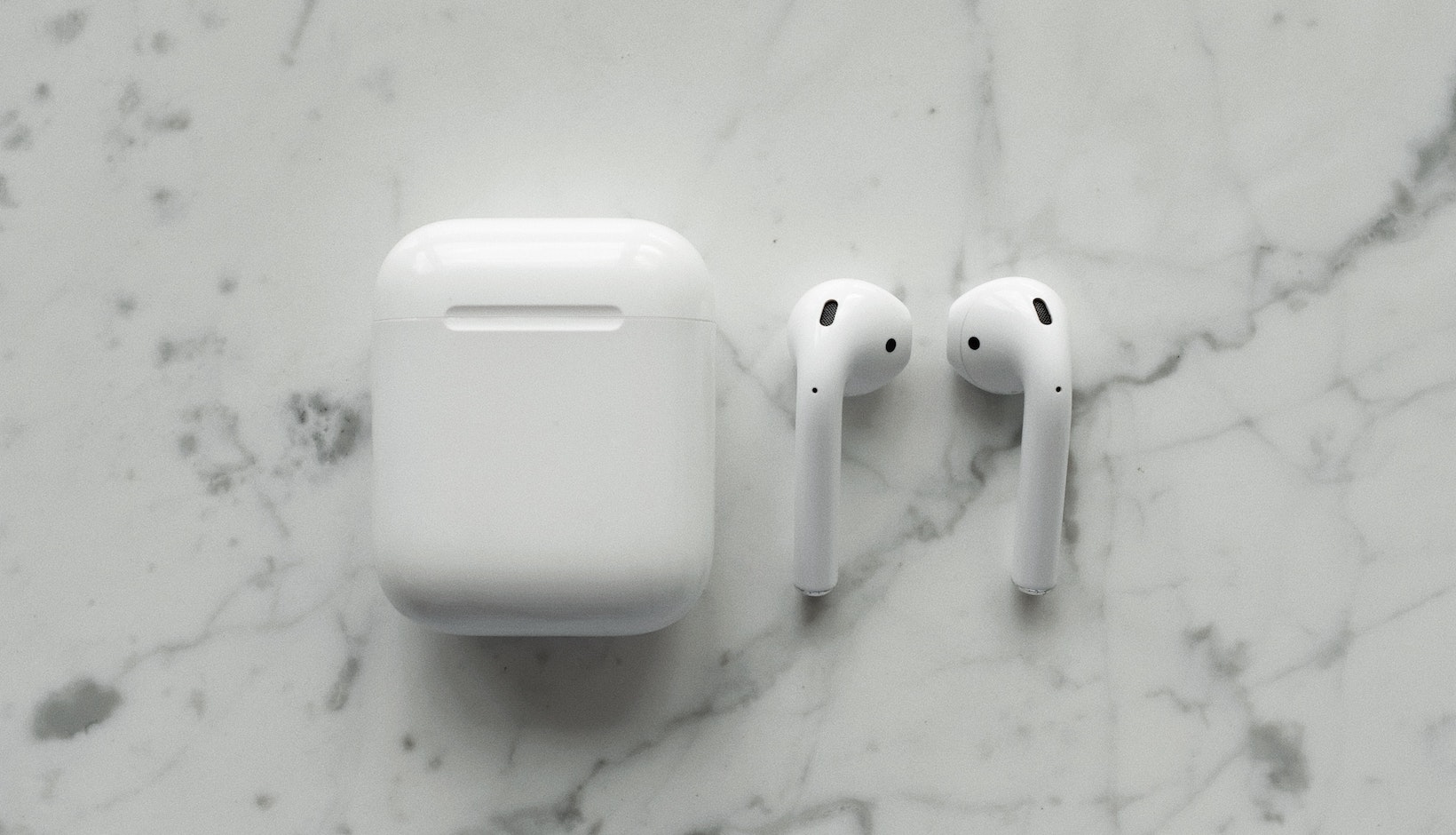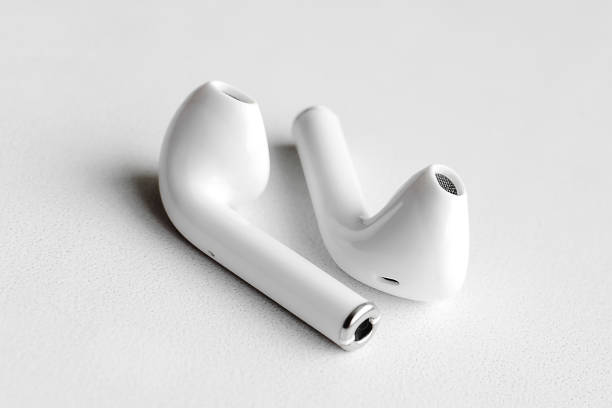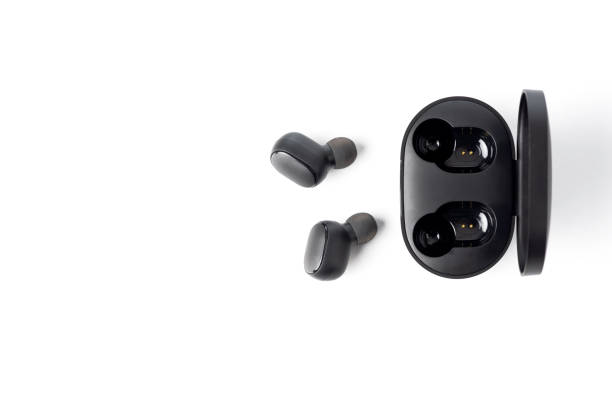Wired Earbuds Or Wireless Earbuds – Which Is Better?

Choosing between wired and wireless earbuds can be tricky, as each has pros and cons.
Wired Earbuds:
Pros:
– No need to worry about battery life or charging.
– Provide a stable and reliable connection to your device.
– Offer high-quality sound and noise isolation.
Cons:
– Can be less comfortable to wear for extended periods.
– Tend to tangle easily and may break over time.
Wireless Earbuds:
Pros:
– Can be more comfortable to wear, with no wires to get in the way.
– Provide greater freedom of movement.
– Usually come with a portable charging case.
Cons:
– Battery life varies and may require frequent charging.
– Connectivity issues can arise, like signal dropouts or pairing problems.
– Can be more expensive than wired earbuds.
Ultimately, the decision between wired or wireless earbuds comes down to personal preference and intended use. If convenience and mobility are top priorities, wireless earbuds may be the better choice. However, if sound quality and reliability are more important, go for the wired earbuds.
Pro tip: Choose the best earbuds that fit your lifestyle and budget.
Physical Characteristics
When considering wired and wireless earbuds, physical characteristics are important to consider. Wired earbuds connect directly to your device via a 3.5mm headphone jack, often with an additional audio cable. Wireless earbuds typically connect to your device over Bluetooth and require charging before each use.
In this section we will discuss the physical characteristics of wired and wireless earbuds to determine the better option.
Differences in size and weight
When it comes to wired and wireless earbuds, there are noticeable differences in size and weight, which may be a deciding factor for some when choosing between the two types.
Compared to wireless earbuds, they tend to be smaller, lighter, and less bulky because they do not require the additional hardware needed for wireless connectivity. Moreover, wired earbuds tend to have a smaller or no battery, reducing their overall size and weight.
On the other hand, wireless earbuds are usually larger and heavier due to the additional hardware needed for Bluetooth connectivity and battery. Despite this, the convenience and freedom of no cords or wires may outweigh the difference in size and weight for some users.
Differences in durability
Regarding durability, wired earbuds have an advantage over wireless earbuds. This is because they do not rely on a battery to function and have fewer components that can malfunction or break.
Wired earbuds also have a more secure fit, as they are connected to the device through a physical wire. This reduces the risk of losing or misplacing one earbud.
On the other hand, wireless earbuds offer more freedom and convenience, as they do not have wires that can get tangled or caught on clothing. They are also easier to use during physical activities like running or working out.
Ultimately, the choice between wired and wireless earbuds comes from personal preference and lifestyle needs. Wired earbuds are the way to go if you prioritize durability and reliability. However, wireless earbuds may be the better choice if you value convenience and flexibility.

Differences in style
When it comes to choosing between wired earbuds and wireless ones, there are a few differences in style and physical characteristics to consider- each with its advantages and disadvantages.
Wired earbuds offer reliable sound quality, fewer connectivity issues, and lower prices. However, they can be inconvenient during exercise or other activities due to their cords.
Wireless earbuds offer flexibility and ease of use, making them more convenient during physical activity or when on-the-go. They also have better battery life, sound quality, and noise-cancellation capabilities. However, they tend to be more expensive and prone to connectivity issues. Additionally, they can easily get lost or damaged due to their size.
Ultimately, your choice will depend mainly on your priorities and personal preferences. So, weighing the physical characteristics and style differences before making a final decision is essential.
Sound Quality
The sound quality is the main factor to consider when choosing between wired or wireless earbuds.
Regarding sound quality, wired earbuds usually have the edge over their wireless counterparts. This is because they provide clearer and more accurate sound reproduction, making them ideal for listening to music or watching movies.
So let’s explore the differences in sound quality between wired and wireless earbuds.
Differences in sound quality between wired and wireless earbuds
When it comes to sound quality, wired earbuds tend to have an edge over wireless earbuds. This is because the connection between the device and the earbuds is direct and consistent in wired earbuds, resulting in clearer and more accurate sound. On the other hand, wireless earbuds rely on Bluetooth technology to transmit audio signals, which can result in occasional dropouts, static, or other sound quality issues.
That being said, many high-end wireless earbuds now come with advanced features like noise-canceling and low-latency modes, which can significantly improve sound quality and reduce latency. In addition, some wireless earbuds even feature high-quality codecs like aptX and LDAC, which can provide near-lossless audio quality over Bluetooth.
Whether wired or wireless earbuds are better for sound quality depends on your preferences and priorities. For example, wired earbuds may be better for audiophiles who value the most accurate and clear sound. In contrast, wireless earbuds may be more suitable for those prioritizing convenience and portability.
Factors affecting sound quality in wired and wireless earbuds
Factors affecting sound quality in wired and wireless earbuds are different for each type, and it’s essential to understand them to choose the earbuds that meet your sound standards.
In wired earbuds, sound quality is primarily affected by the quality of wires, connectors, and codecs used in the earbuds. Therefore, the thickness and material of the cable, the type of connector, and the DAC (Digital Audio Converter) used in wired earbuds play an essential role in determining their sound quality.
In wireless earbuds, sound quality depends on factors such as the quality of Bluetooth codec used (such as aptX, AAC, or LDAC), the ability to cancel external noise, and the size of the earbuds’ drivers. In addition, the distance between your device and earbuds, battery life, and the design of earbuds also affect the sound quality of wireless earbuds.
While wired earbuds offer a more stable connection and better sound quality, wireless earbuds provide more convenience and are better for use during physical activities or when untethered from devices. Ultimately, the choice between wired and wireless earbuds comes down to personal preference based on the factors that affect sound quality that matter most to you.
Pro Tip: Research and read reviews thoroughly to understand the specifics of each earbud’s sound quality to make the best choice for your needs.
Comparison of noise cancellation features
Regarding the sound quality and comparing noise cancellation features of wired and wireless earbuds, there are some key differences to remember.
Wired earbuds offer better sound quality because of the consistent and uninterrupted signal flow from your audio device to your earbuds. They also often come with better noise cancellation features as they can passively block out more outside noise due to their design.
On the other hand, wireless earbuds offer more convenience and freedom of movement. They use Bluetooth to connect to your audio device, sometimes resulting in a weaker signal and slightly decreased sound quality. However, many wireless earbuds come equipped with active noise cancellation technology to cancel out background noise for a more immersive audio experience.
Ultimately, the choice between wired and wireless earbuds comes from personal preference and specific needs. If sound quality and noise cancellation are top priorities, wired earbuds may be the better option. But if you value convenience and mobility, wireless earbuds with active noise cancellation may be the way to go.

Convenience and Compatibility
Choosing between wired or wireless earbuds can seem daunting, but both have pros and cons. Therefore, it’s important to consider how each type works and what kind of experience it can offer.
In this article, we’ll discuss the convenience and compatibility of wired and wireless earbuds.
Advantages and disadvantages of wired earbuds
Wired earbuds offer several advantages over wireless earbuds, including better sound quality, lower cost, and greater compatibility with a wider range of devices. However, they also have significant disadvantages, such as limited range of motion and more tangled cords that can increase wear and tear.
Let’s explore some of the advantages and disadvantages of wired earbuds in detail:
Advantages:
Better sound quality: Wired earbuds offer superior sound quality compared to wireless earbuds because they use a direct wired connection with the device.
Lower cost: Wired earbuds are often less expensive than wireless earbuds, making them a more affordable option.
Greater compatibility: Wired earbuds are compatible with most devices with an audio jack, while wireless earbuds require Bluetooth connectivity.
Disadvantages:
Limited range of motion: Wired earbuds are tethered to the device, limiting your range of motion.
Tangles: Cords can easily become tangled and are prone to wear and tear, reducing longevity.
Less convenient: Wired earbuds require a physical connection to the device, making them less convenient than wireless earbuds.
Ultimately, switching between wired and wireless earbuds depends on personal preferences and needs. However, wired earbuds remain a reliable, low-cost option that offers better sound quality and greater compatibility with audio devices.
Pro tip: Store your wired earbuds in a hard-shell case to avoid tangled cords and wrap the cord around your fingers before putting them away.
Advantages and disadvantages of wireless earbuds
Wireless earbuds have become increasingly popular as a portable audio device. However, they come with several advantages and disadvantages that you should consider before buying them.
Advantages:
Convenience: Wireless earbuds offer unrestricted movement and are perfect for workouts, sports, and other physical activities.
Compatibility: They can be paired with a wide range of devices such as phones, laptops, and tablets, and have easy set-up procedures.
Disadvantages:
Battery Life: Wireless earbuds require charging, and their battery life varies depending on the quality of the device and usage.
Price: Wireless earbuds are costlier than wired ones and often have fewer features.
Quality: The sound quality of wireless earbuds can sometimes be compromised due to their small size and Bluetooth technology.
Choosing between wired and wireless earbuds depends on your preferences and usage. Wired earbuds offer excellent sound quality and are more affordable than wireless ones but restrict movement. If you want convenience and portability, wireless earbuds are a great option, but they tend to be pricier and may compromise sound quality.
Compatibility differences between wired and wireless earbuds
When it comes to earbuds, compatibility differences between wired and wireless models can make a significant difference in your listening experience.
Wired earbuds use a 3.5mm audio jack to connect to your phone or other audio devices. They offer consistent audio quality but can be cumbersome, as the wires can easily tangle or get caught on objects.
In contrast, wireless earbuds use Bluetooth to connect to your devices and offer increased convenience and mobility. However, wireless models may have lower audio quality or may experience connectivity issues.
Ultimately, the choice between wired and wireless earbuds depends on your preferences and needs, with each option having unique trade-offs and benefits.

Battery Life and Charging
When deciding between wired or wireless earbuds, battery life and charging are big factors. Both wired and wireless earbuds can provide long-lasting playback with their top-of-the-line models, but what separates them?
This section explores the battery life and charging of wired and wireless earbuds and how they compare.
Comparison of battery life in wired and wireless earbuds
Regarding battery life and charging, wired and wireless earbuds have notable differences that can affect your listening experience.
Wired Earbuds: Generally, wired earbuds do not require a battery and do not need to be charged. This means you can use them unlimitedly, as long as the device they are plugged into has power. However, some wired earbuds have a built-in mic and control buttons requiring battery power.
Wireless Earbuds: As the name suggests, wireless earbuds rely on a battery to operate. Most models have a 4-8 hours battery life, but some premium models can last up to 12+ hours. When the battery runs out, you must charge them in their case. The charging case usually takes a few hours to fully charge the earbuds and must be charged regularly.
Consider the tradeoffs between convenience and battery life when choosing between wired and wireless earbuds. Pro tip: Invest in wireless earbuds with a long battery life and quick charging capabilities to maximize your listening time.
Differences in charging methods
When it comes to charging wired and wireless earbuds, there are a few key differences in the charging methods that can affect the battery life and overall performance of these devices.
Wired earbuds typically use a USB charging cable to connect directly to a power source or a device with a USB port. This charging method provides a consistent power flow to the earbuds and can be completed faster than wireless charging.
On the other hand, wireless earbuds use either a charging case or a charging pad to charge the earbuds without plugging them into a power source. While this method can be more convenient, it may come at a cost of slower charging times and reduced battery life over time.
Ultimately, switching between wired and wireless charging methods depends on individual preferences and needs. For example, wired charging may be more suitable for those prioritizing faster charging times and consistent power delivery, while wireless charging can provide a more convenient, cable-free experience.
Comparison of charging speeds
When it comes to charging speeds, wired earbuds are faster to charge than wireless earbuds, and this is because wired earbuds typically have a lower battery capacity than wireless earbuds.
Here’s a comparison of the charging speeds: Wired earbuds can typically charge from 0 to 100% in less than an hour, or even in just a few minutes, depending on their battery capacity and the charging speed of the cable and adapter used.
On the other hand, wireless earbuds typically require around 2-3 hours to charge fully, but some models with fast-charging technology can charge up to 50% in just a few minutes.
It’s worth noting that wired earbuds require a wired connection to charge, whereas wireless earbuds can be charged wirelessly or via a charging case that uses a cable connection.
Ultimately, the decision between wired and wireless earbuds depends on your preferences and needs.
Price
The cost of wired or wireless earbuds is one of the main criteria used to decide which is better. However, their cost can depend on their features, design, brand, and more.
In this section, we will compare the price of wired and wireless earbuds to determine which is more affordable.
Price differences between wired and wireless earbuds
When it comes to earbuds, it is no secret that wireless earbuds cost more than wired ones. Wireless earbuds can cost between $50 to $300, while wired earbuds can cost between $5 to $100. However, the price difference is justified as wireless earbuds offer much added convenience.
Wireless earbuds offer a cord-free experience, making them great for workouts or outdoor activities. They also come with long battery life, noise cancellation features, and the ability to pair with multiple devices. On the other hand, Wired earbuds are affordable and can deliver high-quality sound while requiring minimal charging.
If sound quality is a priority for you and you don’t mind compromising on convenience, wired earbuds are the way to go. But if you value a clutter-free, flexible listening experience, wireless earbuds are worth the investment.
Factors affecting the cost of wired and wireless earbuds
When buying earbuds, several factors can affect their price, whether you are looking for wired or wireless earbuds.
Quality of Sound: Sound quality is the most essential factor affecting the price of wired and wireless earbuds. High-quality earbuds with cutting-edge technology and advanced noise-canceling features will be more expensive than cheaper ones.
Brand Name: The brand name also affects the cost of earbuds. Popular brands like Apple and Bose will have a higher price tag than lesser-known brands.
Battery Life: In wireless earbuds, battery life is a crucial factor. The longer the battery life, the more costly the earbuds will be.
Additional Features: Wired and wireless earbuds have additional features like noise cancellation, voice control, and fitness tracking, making them costlier than those without.
Whether you choose wired or wireless earbuds depends on your preference and usage. Wired earbuds can provide excellent sound quality at an affordable price, while wireless earbuds offer convenience and portability.

Comparing the value for money
When choosing between wired and wireless earbuds, the value for money depends on your usage and needs. Wired earbuds are generally cheaper and offer better sound quality than wireless earbuds. On the other hand, wireless earbuds provide more convenience and flexibility, but come at a higher cost.
Here’s a comparison of the value for money for both types of earbuds:
Wired Earbuds:
- Pros: Affordable prices, better sound quality, no battery required.
- Cons: Limited mobility due to wire, prone to tangling, may fall out easily.
Wireless Earbuds:
- Pros: Convenient and easy to use, no wires to get tangled, more comfortable to wear for extended periods, better for on-the-go activities.
- Cons: More expensive, limited battery life, sound quality may not be as good as wired earbuds.
Ultimately, the choice between wired and wireless earbuds depends on your preference and budget. If you value sound quality and price, wired earbuds are the way to go. However, if you prioritize convenience and portability, wireless earbuds may be your better choice.
001-jt1ufzowufazsowkyhtirw-429770558
When choosing between wired and wireless earbuds, both types have advantages and disadvantages. Wired earbuds are usually more affordable and come with good sound quality. On the other hand, wireless earbuds are more convenient and don’t have any cords to get tangled up.
In this article, we will compare the pros and cons of using wired and wireless earbuds to decide which is better for your needs.
Personal preference
When choosing between wired and wireless earbuds, personal preference plays a major role in the selection process. Both styles have benefits and drawbacks depending on your needs and lifestyle.
Wired earbuds offer high-quality sound and are often less expensive than wireless options. They also don’t require charging, making them more convenient for long listening sessions.
On the other hand, wireless earbuds allow for greater mobility and range of motion since no wires restrict movements. They also offer features like noise-cancellation and touch controls.
Depending on how you plan to use them, either option could be better. If you prioritize sound quality and affordability, wired earbuds are the way to go. However, wireless earbuds are a better choice if you value convenience and mobility. It’s all about determining what works best for your lifestyle and preferences.
Pro tip: Consider hybrid earbuds that offer the best of both worlds, such as wireless earbuds that come with a detachable wire when wireless connectivity is unavailable.
Specific usage
Choosing between wired and wireless earbuds depends on your specific usage and preferences.
Wired earbuds: If you prioritize sound quality and don’t mind dealing with cords, then wired earbuds may be your best choice. They can deliver higher fidelity audio than wireless models and don’t require battery charging. However, they can get tangled or caught during exercise, and the cord can be easily damaged.
Wireless earbuds: If you value convenience and portability, wireless earbuds are a great option. They offer greater flexibility of movement and are better suited for workouts, running, and outdoor activities. However, they may not provide the same sound quality as wired models due to data compression and battery limitations.
Ultimately, your choice depends on your usage habits and personal preferences.
Investment in long term or short term
When investing in earbuds, deciding between long-term or short-term investment will depend on your specific needs and preferences.
Wired earbuds are a more cost-effective option, and though they come with the inconvenience of tangled wires, they often provide a better sound quality and secure fit. On the other hand, wireless earbuds offer more freedom of movement and convenience, although they tend to be pricier and require charging.
If you want a reliable and durable option for long-term use, wired earbuds may be the way to go. However, if you prioritize mobility and cutting-edge technology, wireless earbuds may be a more fitting.
Ultimately, the best investment depends on what you value most.
What's Your Reaction?
Deepak is a lover of nature and all things sporty. He loves to spend time outdoors, surrounded by the beauty of the natural world. Whether he's hiking, biking, or camping, Deepak enjoys being active and in touch with nature. He also loves to compete and push himself to his limits. Deepak is an avid cyclist, runner, and swimmer. He has competed in several triathlons and marathons, and is always looking for new challenges to take on.


